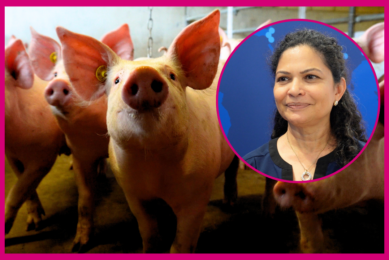NPPC relays food safety bill concerns
While a food-safety bill making its way through the US House largely exempts livestock and poultry farms, US pork producers still have some concerns with the legislation, the National Pork Producers Council told the House Agriculture Committee, which held a hearing on the measure.
In a letter sent yesterday to all members of the agriculture panel, NPPC and 24 state pork producer associations urged lawmakers to resolve a number of outstanding issues before finalising the “Food Safety Enhancement Act of 2009” (H.R. 2749), including:
•©Insert language to better define in the bill the terms “food” and “facility.”
•©Clarify the scope of new and expanded power given to the US Food and Drug Administration to regulate the grain side of diversified farming operations. Could pig buildings be inspected, for example, if FDA were coming on a diversified farm for a grain food-safety issue?
•©Retain the current standard that allows FDA to come on a farm if it has a “reasonable belief” that food is adulterated and presents a threat of “serious adverse health consequences or death” to humans or animals. As written, the bill would change the standard to allow on-farm inspections if food is “thought to be adulterated, misbranded or in violation of H.R. 2749.”
•©Eliminate the civil penalties that farmers could be charged for errors in complying with new record-keeping requirements. Under the bill, a diversified pork producer who has a paperwork glitch could be charged up to $1 million per year.
•©Allow federal agencies that currently have jurisdiction over agriculture matters to retain their authority rather than have FDA usurp or duplicate it. Under the bill, for example, FDA could quarantine a geographic area where food that presents serious adverse health consequences or death to humans or animals may have originated. That very broad power far exceeds the authority currently granted to the US Department of Agriculture, which already can quarantine live animals and has a preventive inspection system to keep adulterated meat from entering the food supply.
•©Ensure that provisions in the bill would not invite retaliation from US trading partners. (The House Ways and Means Committee has some concerns.)
The organiations also urge lawmakers to oppose any amendments that would ban certain antibiotics used in livestock production. Earlier this week, the House Rules Committee held a hearing on the “Preservation of Antibiotics for Medical Treatment Act of 2009” (H.R. 1549), which would ban animal health products that are used to prevent and control diseases. Farmers only would be allowed to use animal health products that treat diseases.
Related website
• NPPC











